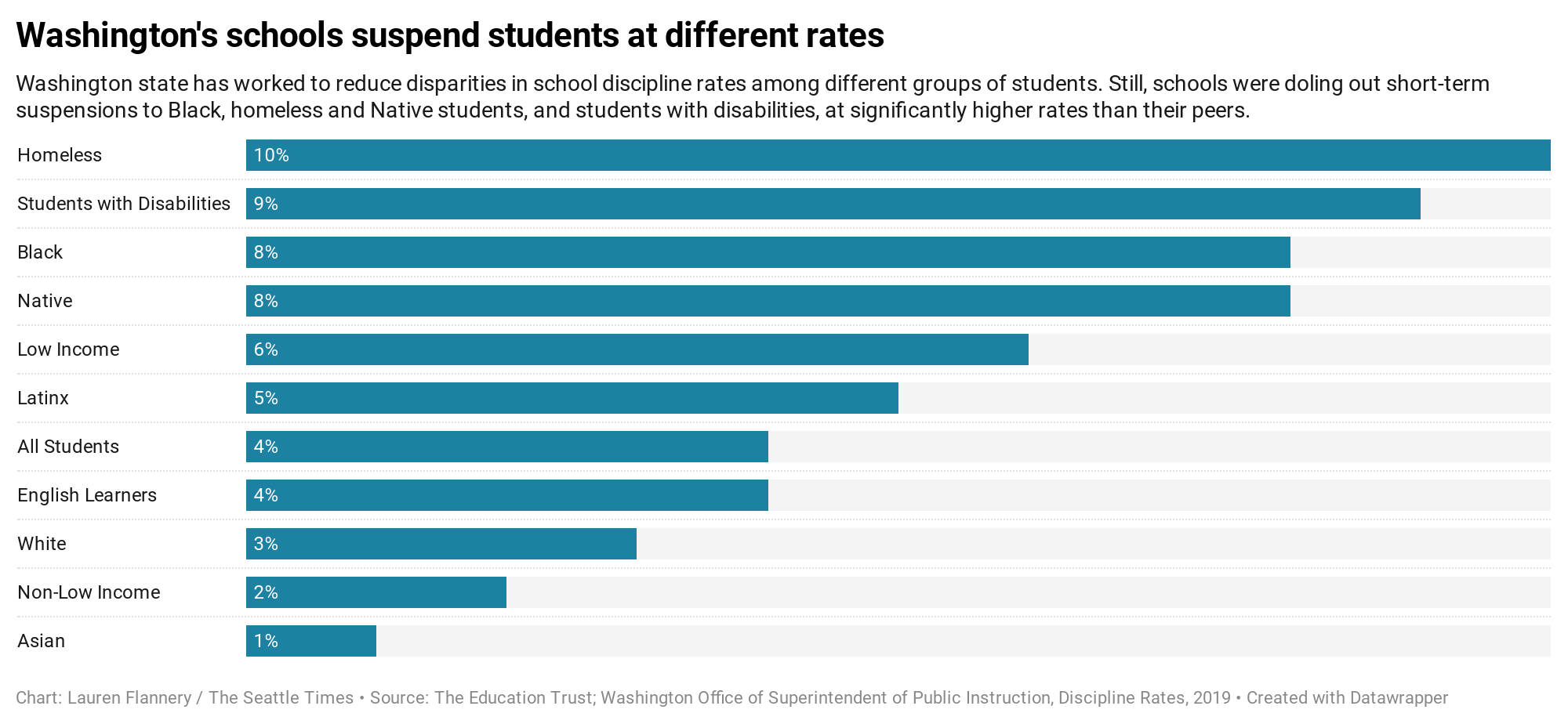How is Washington State doing in its effort to reduce racial disparities in discipline? According to a recent report by The Education Trust, we have a long way to go. In her November 22 feature for EdLab, Seattle Times reporter Joy Resmovits details the report’s findings, with school suspension data at the top of the page:

As the chart illustrates, in spite of Washington State Office of the Superintendent of Public Instruction’s (OSPI) updated rules governing exclusionary discipline, racial discipline disparities persist. Why?
Sound Discipline Board Member, Megan Streeter, who serves as Puget Sound Educational Service District’s (PSESD) School Safety and Threat Assessment Consultant, offers this answer.
“What I think we’ve seen is that there is an old school way of thinking of education wherein students are expected to go to school and behave. We are starting to acknowledge that school is an adaptive ecosystem, where students’ lives in and out of school are intertwined. You can’t foster this ecosystem by making rules. What matters is our habits — what adults do in schools and how that shapes kids. It’s about a big culture change. That takes time.”
In her report “Social, Emotional, and Academic Development Through an Equity Lens,” Education Trust Research Associate, Nancy Duchesneau, reinforces this notion of fundamental culture change. Changing adult beliefs and mindsets as well as policies and systems, she asserts, is the whole point.
For many public schools, however, social emotional learning isn’t about building connection and community, it’s about compliance, for example, teaching emotional regulation skills so students “do what I say.” Compliance does not address inequity — in fact, it makes it worse! Social emotional learning approaches focused on fixing kids can reinforce more subtle versions of traditional reliance on punishments and rewards — for example, star charts, competition for recognition, and social exclusion. Approaches that sort kids into good and bad signal to our kids that belonging is conditional. That harms all kids, but especially those who experience racism or other forms of marginalization. (Take another look at that discipline disparity chart!)
Effective social emotional learning is profound. It’s about creating a culture and a mindset that fosters learning and well-being rooted in belonging. It’s about fostering a healthy ecosystem both in and around our schools that supports our kids’ whole selves.
Sound Discipline is working for a world where children know they belong and can learn and thrive.
We partner with educators, organizations, and families to transform schools into equitable learning communities.
We bring together science-based, trauma-informed, restorative, and Positive Discipline practices to facilitate change in the ways adults see and respond to students.
Courageous Educators:
We facilitate school leaders and educators to build classroom communities and model an inclusive culture school-wide that promotes student agency and well-being.
Equitable School Systems:
We coach administrators and educators to use data to identify and implement solutions that address damaging systemic patterns of inequity that target Black and brown students.
Connected Families:
We train and coach families and caregivers in a child’s life to apply solution-oriented practices that instill critical social emotional life skills.
